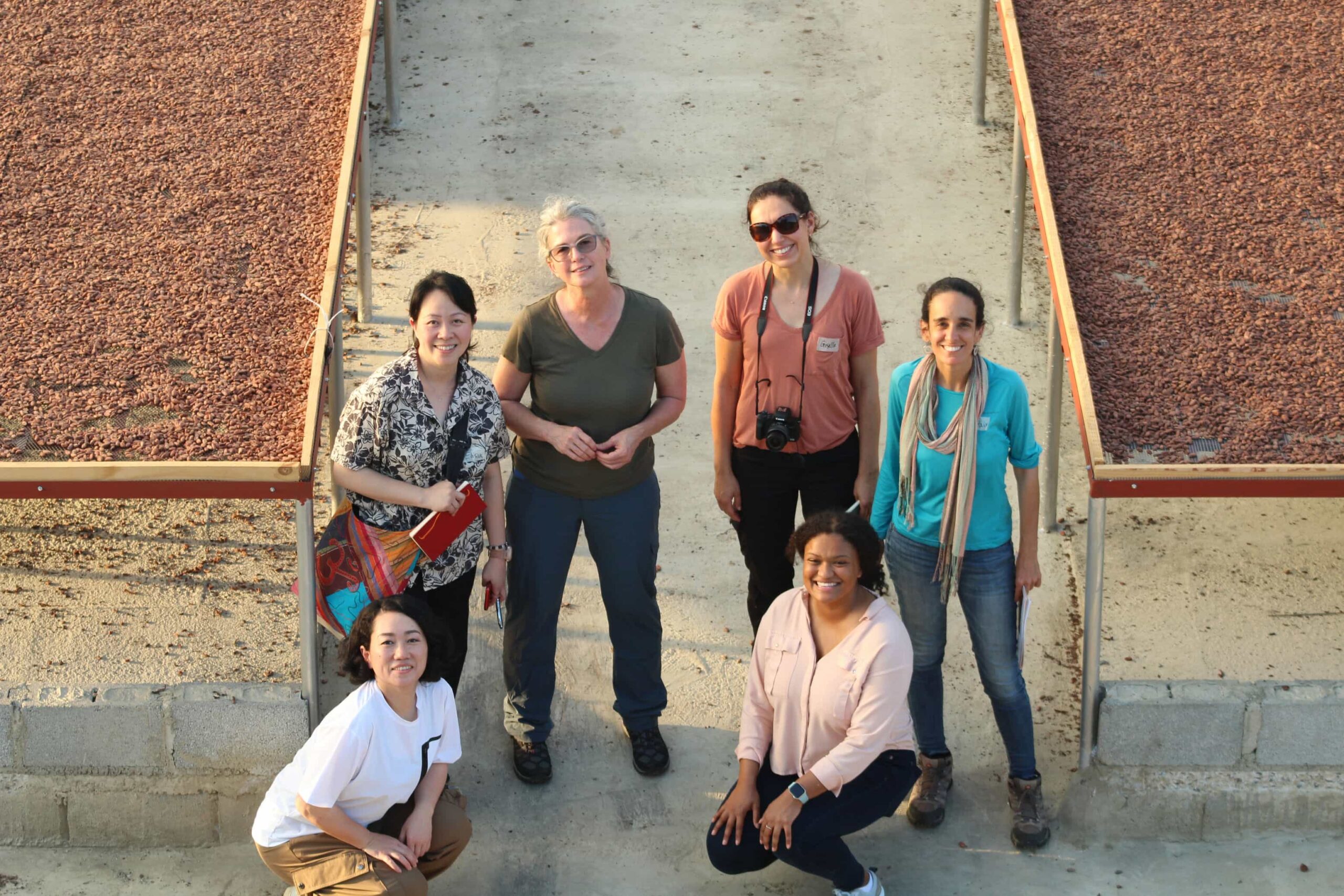When it comes to cocoa and chocolate ecosystems, we believe there are no definitive answers. New information emerges all the time, but our knowledge will always be incomplete. Instead of teaching that there is one correct answer, we teach to the best of our knowledge.
Masterclass instructors invite in the expertise of fellow instructors, partner organizations, growers, and students, because we believe the best learning happens when we can see things from another perspective.
We are interested in arriving together at a holistic understanding of the cocoa value chain. This involves examining the ways that we, as humans, manipulate cocoa for our own purposes. It also involves recognizing how cocoa manipulates us.
This philosophy guides every Cocoa Masterclass course, to inspire thoughtful, informed discussion and critique of an industry we love.
Instructors in the Cocoa Masterclass teach with the following format: Context, Concept, Application
Context
We start every Masterclass course by understanding the context: relationships and interlinkages that make up the system we are studying.
Setting the context for our shared learning might involve discussing a bit of history, science, trade patterns, or marketing trends.
The goal is to start by showing that nothing can be analyzed in isolation: we must always begin by understanding the “environment” or “lineage” of the topic.
For example, when we teach about certifications, we start by discussing the history of certifications in Europe and North America: when and why they emerged, and how they became a popular tool to further socioeconomic justice.
Concept
After setting the context, we move to one or more key concepts that we will analyze in detail.
A concept is an abstract idea that helps us to understand, in general, how something can work in the real world.
For example, in our class on certifications, we study the concept of mass balance.
We might start by asking what you already know about mass balance, and whether you have a position on it. Then we analyze the components that make up the idea of mass balance, and see how they all fit together.
Application
Finally, we apply our learning about the concept, by talking through an example or illustration, working through an exercise, or doing a tasting.
Our goal is to understand how the concept “works” in the real world. We might perform a calculation; do a role-play; or analyze an image, video, chart, or table. When the concept has a practical application, we might do that activity together.
When studying certifications, for example, we analyze a fictional chocolate company to calculate how much cocoa it could buy under the mass balance system, and the implication for marketing its chocolate.
We might also compare certification labels to understand their impact goals and methods for reaching those goals (and, of course, whether they allow mass balance!).
The Cocoa Masterclass teaches advanced concepts that will give any chocolate professional, aspiring professional, or enthusiast insight into the markets for specialty cocoa and chocolate.
Our instructors all have practical professional experience in their subject areas. As such, they can and do give guidance on how to apply conceptual learnings. Many Cocoa Masterclass courses are practically oriented and have wide-ranging real-world applications.
However, the Cocoa Masterclass is not a professional training program.
Instead, we teach about topics in our areas of expertise.
What is the difference between teaching and training, you might ask? That’s a great question!
Here are a few examples that illustrate the difference:
In the Cocoa Masterclass, we teach on the topic of chocolate making, discussing its steps and their importance to the process of flavor and texture development. We may even demonstrate the process, if the equipment is available and infrastructure allows.
However, we don’t train you in the practical skills of making chocolate. We share what we know about the process, and we are happy to recommend our favorite programs that do train chocolate makers.
Here’s another example: we teach a class on cocoa futures trading, in which we explain how futures trading works, and walk through a realistic example to illustrate what a trader would expect from the process.
But we don’t train you how to hedge. That is a practical professional skill that is beyond the scope of the Masterclass.
We can, however, make suggestions for internship placements that can train you to hedge, through the Masterclass Alumni Network.
Please keep this in mind when enrolling in any Cocoa Masterclass. Upon completion of your course, our instructors and alumni will be happy to point you in the right direction for your training needs.
